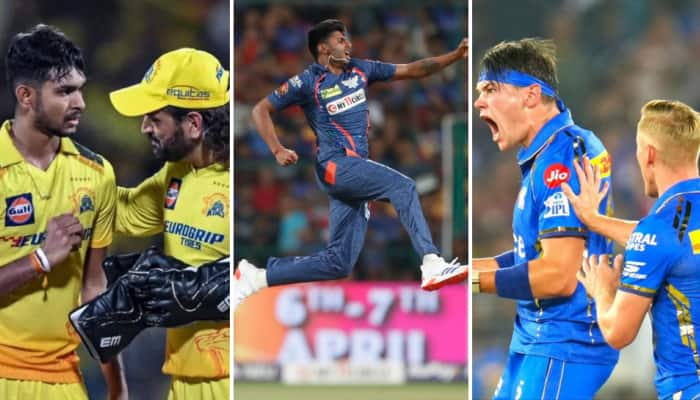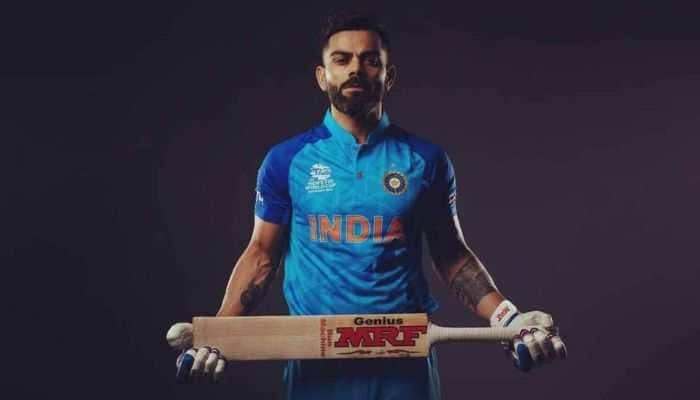Ayodhya case diary opens again…
The long standing Ayodhya dispute is at the doors of the Supreme Court.
Trending Photos
)
 Biplob Ghosal
The long standing Ayodhya dispute is at the doors of the Supreme Court, in hope that this time it doesn’t take decades to deliver a verdict.
Well, a new debate has now surfaced with the recent apex court’s hearing which has questioned the Lucknow bench of Allahabad High Court’s judgement. "A new dimension was given by the high court as the decree of partition was not sought by the parties. It was not prayed by anyone. It has to be stayed. It’s a strange order," the SC bench said.
The observation by the apex court certainly brings forth the big question – Will the SC give its judgement in one party’s favour. If that becomes the case, then the world’s biggest democracy will surely be tested on the judgement day whether India has moved forward or it can still be divided on the lines of religion, caste and creed.
The Allahabad High Court judgement didn’t go down well with the petitioners from both the sides, which, in September last year, passed the verdict directing partition of the 2.77 acre land on which the disputed structure once stood into three parts amongst Muslims, Hindus and the Nirmohi Akhara. This decision led the petitioners to make a move to the highest judiciary.
The SC in its first day hearing contended that claims of Muslims, Hindus and the Nirmohi Akhara over the disputed site were mutually exclusive and could not be shared.
The SC bench responded to a batch of appeals filed by Nirmohi Akhara, Akhil Bharat Hindu Mahasabha, Jamait Ulama-I-Hind and Sunni Central Wakf Board, besides the one filed on behalf of Bhagwan Ram Virajman.
The Wakf Board and Jamait Ulama-I-Hind have submitted that the High Court`s verdict should be quashed as it was based on faith and not on evidence. They have contended that the court has committed an error by holding a notion that the demolished Babri mosque stood at Lord Ram`s birth place.
Let’s understand the history of the most controversial religious site of India. The age-old Ayodhya dispute revolves around the claim over land in Ayodhya known as Ram Janmabhoomi, on which the Babri Mosque was said to have been built in 1528.
It’s said that Muslim emperor Babur’s general, Mir Baki, built the mosque in Ayodhya in 1528. However, Hindus argue that Lord Rama was born on the site, and an 11th century Ram temple stood there until it was demolished and the mosque was constructed on the same site.
Ever since, the issue has been in the limelight and has remained a hot topic for various parties to exploit and twist as per their political interests, but it was in 1853 when the first recorded incident of Hindu-Muslim violence over the site with Hindus alleging the mosque was built on the site of a razed Hindu shrine dedicated to Lord Ram.
What was worse for the nation was that the Ayodhya dispute became politically motivated when in 1984, Vishwa Hindu Parishad (VHP) decided to launch a campaign to open the locks of the Babri mosque. Five years down the lane, Bharatiya Janata Party (BJP) fully supported the movement.
In order to draw support from the Hindu community, senior BJP leader LK Advani launched a Rath Yatra - from Somnath in Gujarat to Ayodhya. The campaign was a huge hit as it received massive support and lakhs of people joined the movement.
However, the episode took an ugly turn on December 6, 1992 when Babri Masjid was demolished during a political rally organised by the Bharatiya Janata Party. The aftermath of this demolition was even more tragic - leading to communal riots, claiming more than 2000 innocent lives.
It is hoped that the Supreme Court, which has of late under the leadership of Chief Justice SH Kapadia, restored faith of the common people in getting justice, delivers a verdict which brings a halt to the burning issue.
The initial hearing suggests that the apex court is not in favour with the land being divided. But the moot question is not whether the land goes to whom – but that the matter should be sorted out as early as possible.
A nation with diversified religious beliefs witnessed the destruction of the Babri Mosque at Ayodhya, exposing the power of religious fundamentalism in India. So, let’s hope that the Supreme Court’s pronounces its verdict on this dispute as soon as possible and not allow political parties to try and reap political mileage, resulting in loss of life of more innocent lives.
Biplob Ghosal
The long standing Ayodhya dispute is at the doors of the Supreme Court, in hope that this time it doesn’t take decades to deliver a verdict.
Well, a new debate has now surfaced with the recent apex court’s hearing which has questioned the Lucknow bench of Allahabad High Court’s judgement. "A new dimension was given by the high court as the decree of partition was not sought by the parties. It was not prayed by anyone. It has to be stayed. It’s a strange order," the SC bench said.
The observation by the apex court certainly brings forth the big question – Will the SC give its judgement in one party’s favour. If that becomes the case, then the world’s biggest democracy will surely be tested on the judgement day whether India has moved forward or it can still be divided on the lines of religion, caste and creed.
The Allahabad High Court judgement didn’t go down well with the petitioners from both the sides, which, in September last year, passed the verdict directing partition of the 2.77 acre land on which the disputed structure once stood into three parts amongst Muslims, Hindus and the Nirmohi Akhara. This decision led the petitioners to make a move to the highest judiciary.
The SC in its first day hearing contended that claims of Muslims, Hindus and the Nirmohi Akhara over the disputed site were mutually exclusive and could not be shared.
The SC bench responded to a batch of appeals filed by Nirmohi Akhara, Akhil Bharat Hindu Mahasabha, Jamait Ulama-I-Hind and Sunni Central Wakf Board, besides the one filed on behalf of Bhagwan Ram Virajman.
The Wakf Board and Jamait Ulama-I-Hind have submitted that the High Court`s verdict should be quashed as it was based on faith and not on evidence. They have contended that the court has committed an error by holding a notion that the demolished Babri mosque stood at Lord Ram`s birth place.
Let’s understand the history of the most controversial religious site of India. The age-old Ayodhya dispute revolves around the claim over land in Ayodhya known as Ram Janmabhoomi, on which the Babri Mosque was said to have been built in 1528.
It’s said that Muslim emperor Babur’s general, Mir Baki, built the mosque in Ayodhya in 1528. However, Hindus argue that Lord Rama was born on the site, and an 11th century Ram temple stood there until it was demolished and the mosque was constructed on the same site.
Ever since, the issue has been in the limelight and has remained a hot topic for various parties to exploit and twist as per their political interests, but it was in 1853 when the first recorded incident of Hindu-Muslim violence over the site with Hindus alleging the mosque was built on the site of a razed Hindu shrine dedicated to Lord Ram.
What was worse for the nation was that the Ayodhya dispute became politically motivated when in 1984, Vishwa Hindu Parishad (VHP) decided to launch a campaign to open the locks of the Babri mosque. Five years down the lane, Bharatiya Janata Party (BJP) fully supported the movement.
In order to draw support from the Hindu community, senior BJP leader LK Advani launched a Rath Yatra - from Somnath in Gujarat to Ayodhya. The campaign was a huge hit as it received massive support and lakhs of people joined the movement.
However, the episode took an ugly turn on December 6, 1992 when Babri Masjid was demolished during a political rally organised by the Bharatiya Janata Party. The aftermath of this demolition was even more tragic - leading to communal riots, claiming more than 2000 innocent lives.
It is hoped that the Supreme Court, which has of late under the leadership of Chief Justice SH Kapadia, restored faith of the common people in getting justice, delivers a verdict which brings a halt to the burning issue.
The initial hearing suggests that the apex court is not in favour with the land being divided. But the moot question is not whether the land goes to whom – but that the matter should be sorted out as early as possible.
A nation with diversified religious beliefs witnessed the destruction of the Babri Mosque at Ayodhya, exposing the power of religious fundamentalism in India. So, let’s hope that the Supreme Court’s pronounces its verdict on this dispute as soon as possible and not allow political parties to try and reap political mileage, resulting in loss of life of more innocent lives.







)
)
)
)
)
)
)
)
)
)
